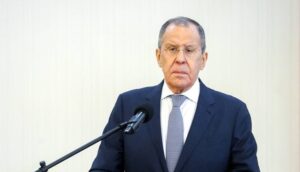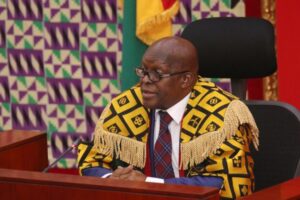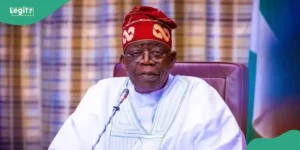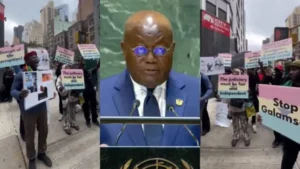
The executive director of Ghana’s Africa Centre for Energy Policy, Ben Boakye, has challenged the claim about the program being responsible for Ghana’s recent fuel price drop.
He previously told The Africa Report that: “If you know how the pricing mechanism works, you will note that it has nothing to do with the gold-for-oil program. It’s because prices on the international market have dropped and this affects petroleum products in the market.â€
Oil price data posted by Bloomberg confirms that between March and April, the price of crude on the international market dropped from about $86 per barrel to $73 per barrel. After peaking again on 10 April, the price appears to be steadily trending downwards.
But Nana Akwasi Awuah, CEO of Ghana’s Precious Minerals and Marketing Company (PMMC) says the recent decline in the price of fuel is as a result of the G4O program. He said the decline in the price of fuel – from ¢13.6 per litre to ¢12.3 per litre – in the last two months, will have a ripple effect on people’s personal economy. “We are focused on efficiency in the implementation so that people will see and feel the impact in their pockets.â€
Under the G4O programme, Ghana aims to secure competitively priced oil by selling gold to ease pressure on the local currency, reverse rocketing fuel prices, and fixing the balance of payment problems.
The program raises questions about risks of corruption in the barter arrangement, the uncertainty of getting the required gold volume, and skepticism around whether or not gold is a good store of value abound. Incidents around smuggling may also jeopardize the program, but the PMMC hopes to establish gold-buying offices to circumvent these types of issues.





